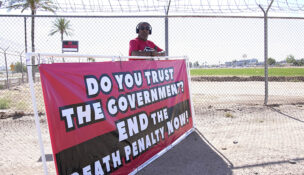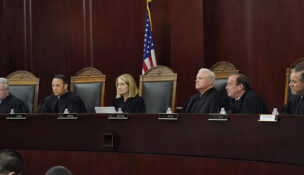Paton bill aims to protect Arizonans from libel tourism
Richard Tackett, Cronkite News Service//February 18, 2010//[read_meter]
Paton bill aims to protect Arizonans from libel tourism
Richard Tackett, Cronkite News Service//February 18, 2010//[read_meter]
Dr. Zuhdi Jasser isn’t reluctant to speak his mind about oil barons he believes to be financiers of terrorism. He does so through the group he founded, the American Islamic...
















